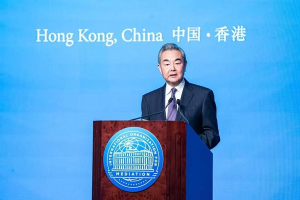
Developing countries need to step up efforts of mobilizing domestic financing resources so as to gather adequate resource for their development and contribute to the efforts of realizing SDGs. The countries can raise their domestic resource mobilization by enhancing efficiency of tax collection capacity as well as eliminating loopholes in the economy like illicit trade that waste the meager wealth of the country.
No one is interested in providing hideous material for the one they love. Similarly, transforming modern and prosperous Ethiopia for our posterity should be our shared vision that all citizens strive for. With this in mind, working day and night towards a vision of multifaceted growth and development in all fields, and paying taxes from what we earn, is what the nation expects from its citizens.
For a developing country like Ethiopia, there is no better option than collecting taxes from the people to fund various development projects, as it is one way of earning income. However, due to the absence of a proper tax system, the country has not been able to collect the expected revenue.
One of the important factors contributing to the low tax collection in Ethiopia is the lack of awareness among the people about taxation. Despite the wide-ranging development needs of the people, many do not understand that paying taxes is mandatory. In this regard, although efforts have been made to raise awareness, they have not been sufficient.
The tax system was backward and exposed to various fraud, corruption, and maladministration, especially before the country underwent a series of reforms after the incumbent assumed power. Despite some changes, there is still a need to implement a modern tax collection and administration system that is well-suited to the evolving times, with the goal of boosting Ethiopia’s revenue and meeting the country’s untapped potential and growing demands.
The government has identified tax reform as a key component of these efforts, and after implementing reform measures that create a more efficient and equitable system, the revenue from taxes and duties increased from 324 billion birr to 374 billion birr in the nine months of the 2015 and 2016 fiscal years, respectively.
According to a recent report by the Ministry of Finance, common revenue increased to 54 billion Birr in the 2016 fiscal year from 42 billion Birr in the previous year. However, the overall revenue still falls short of the nation’s capabilities and needs.
Apart from broadening tax bases to include sectors that are not currently covered, revenue sector institutions are adopting modern strategies and technology-driven systems to combat tax evasion and fraud, while expanding the tax base and investing in projects that will secure prosperity for future generations.
Emphasizing Ethiopia’s immense economic potential, doubling the current revenue would unlock the ability to undertake numerous transformative projects that will benefit future generations and realize the country’s prosperity.
To achieve this, revenue sector institutions must fulfill their responsibilities diligently, focusing on preventing tax evasion and fraud, and adopting a tax collection and management system that is well-suited to the evolving times.
A forward-looking approach is needed to modernize the system and implement new taxation measures that close loopholes for those engaging in various forms of tax fraud. Strengthening operational strategies driven by technology and aligned with the demands of the present era is imperative.
Efforts will be focused on strengthening technology-assisted tax collection and administration, as well as expanding tax bases to address challenges such as illegality and smuggling, which affect revenue collection. Establishing a digital system to better control contraband movement and reinforcing border control measures are necessary steps.
In addition to bringing clarity to taxation, rewarding trustworthy taxpayers continuously is critical to encouraging compliance. Ultimately, the development of today’s Ethiopia rests in the hands of taxpayers. By paying taxes properly and holding the government accountable for development, we can contribute to the prosperity of the country and pass on a prosperous Ethiopia to the next generation.
BY GIRMACHEW GASHAW
THE ETHIOPIAN HERALD SATURDAY 30 NOVEMBER 2024




